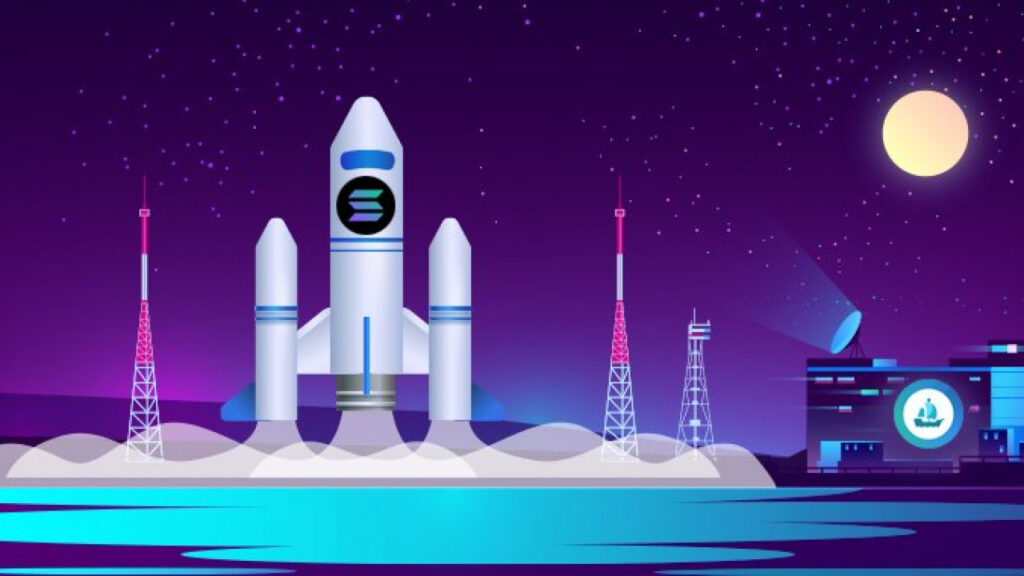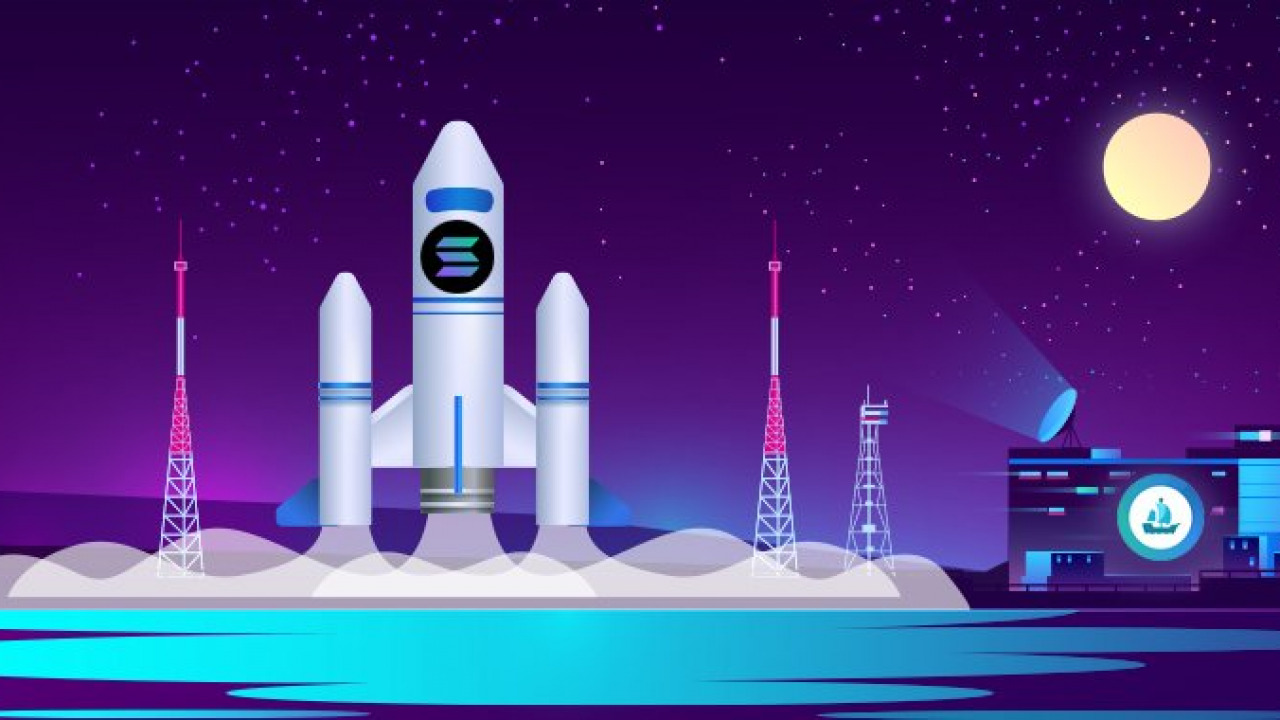Introduction
The gaming industry is evolving at an unprecedented pace, with NFT games leading a new era of digital interaction and value creation. Unlike traditional games, where in-game items and achievements are limited to a game’s servers, NFT games leverage blockchain technology to provide true digital ownership, financial opportunities through play-to-earn models, and the potential for interoperable digital assets across virtual worlds.
In this article, we’ll explore how blockchain technology powers NFT games, the advantages it brings, potential risks, and what the future may hold for this innovative gaming landscape.
What Are NFT Games?
NFT (Non-Fungible Token) games are video games where in-game items—like characters, skins, weapons, or land—are tokenized as unique assets on a blockchain network. Each NFT is verifiable, scarce, and tradable, giving players real ownership and the ability to monetize their gaming experience.
Key Differences from Traditional Games:
- Ownership: Players truly own NFT assets, unlike traditional games where items remain the property of the developer.
- Monetization: NFT games often offer play-to-earn opportunities, whereas traditional games limit earnings to entertainment value.
- Interoperability: NFTs can sometimes be used across multiple platforms or games, unlike locked-in assets in conventional gaming.
How Blockchain Powers NFT Games
Blockchain technology is the foundation of NFT gaming, offering security, transparency, and trust. Here’s how it transforms the gaming experience:
See more: These tips will help you understand these best nft games
1. Proven Ownership
Every NFT is recorded on a blockchain ledger, proving ownership and preventing duplication or fraud. This ensures that players can buy, sell, or trade assets freely without relying on a centralized game developer.
2. Transparency and Security
Blockchain’s decentralized nature ensures that all transactions are public, traceable, and immutable. Players can confidently participate in gaming economies without fear of manipulation.
3. Smart Contracts
Smart contracts automate transactions and in-game mechanics, enabling seamless exchanges, reward distribution, and decentralized governance within the gaming ecosystem.
4. Cross-Platform Possibilities
Some NFT games are exploring interoperable assets, allowing characters or items to be used across multiple games or virtual environments, enhancing the metaverse gaming experience.
Benefits of NFT Gaming
NFT gaming introduces advantages that go far beyond traditional entertainment:

Play-to-Earn (P2E) Opportunities
Players can earn cryptocurrency or NFT rewards by completing missions, trading assets, or participating in competitive events. Games like Axie Infinity have shown that P2E can provide sustainable income for many players worldwide.
True Digital Ownership
NFTs give players full legal rights to their digital assets, unlike traditional games where progress and items are locked to a single server or account.
Interoperability
NFTs can create shared economies across platforms, where players can use a single asset in multiple games or experiences, fostering creativity and long-term engagement.
Community-Driven Governance
Blockchain gaming platforms often empower players to vote on updates, game rules, or marketplace decisions, promoting a player-first ecosystem.
Popular NFT Games and Platforms
Here are some leading NFT games showcasing blockchain’s potential:
- Axie Infinity: A Pokémon-inspired game where players breed, battle, and trade NFT creatures to earn cryptocurrency.
- Decentraland: A virtual world where users can buy, sell, and develop land as NFTs, creating unique experiences and real-world value.
- The Sandbox: A platform for creating, owning, and monetizing virtual experiences using NFT assets.
- Illuvium: An open-world RPG combining NFT assets and decentralized finance (DeFi) mechanics.
These examples highlight NFT gaming benefits, including financial rewards, digital ownership, and immersive gameplay.
Risks and Controversies
Despite the advantages, NFT gaming has challenges that players must consider:
- Market Volatility: NFT and cryptocurrency prices can fluctuate dramatically, impacting asset value.
- Scams and Fraud: Unregulated platforms or fake marketplaces can deceive players.
- Environmental Concerns: Some blockchains consume significant energy, raising sustainability issues.
- Regulatory Uncertainty: Different jurisdictions have varying stances on NFTs, crypto gaming, and taxation.
Players should conduct research, choose reputable platforms, and manage risk when participating in blockchain gaming.
NFT Games vs Traditional Games: Key Differences
| Feature | NFT Games | Traditional Games |
|---|---|---|
| Ownership | Player owns NFTs | Developer retains ownership |
| Monetization | Play-to-earn | Limited to in-game purchases |
| Interoperability | Possible across games | Locked in-game |
| Transparency | Blockchain ledger | Proprietary servers |
| Community Influence | Decentralized governance | Limited influence |
This comparison highlights how NFT games are reshaping the gaming landscape, introducing real-world value and autonomy for players.
The Future of Blockchain Gaming
Blockchain is expected to further revolutionize gaming through:
- Metaverse Integration: Fully immersive virtual worlds where players own land, items, and experiences.
- Decentralized Game Economies: Players participating in governance, revenue sharing, and collaborative creation.
- Cross-Platform Asset Use: NFT assets functioning in multiple games and apps.
- Mainstream Adoption: Traditional developers partnering with blockchain platforms to expand play-to-earn experiences.
The future of NFT gaming promises a fusion of entertainment, finance, and community engagement, transforming how we perceive value in digital worlds.
Conclusion
NFT games, powered by blockchain technology, are reshaping the gaming industry. They offer play-to-earn opportunities, true digital ownership, and interoperable assets that traditional games cannot provide. While risks like market volatility and scams exist, the potential for metaverse gaming, decentralized economies, and community-driven platforms makes blockchain gaming an exciting frontier for players, investors, and tech enthusiasts alike.



